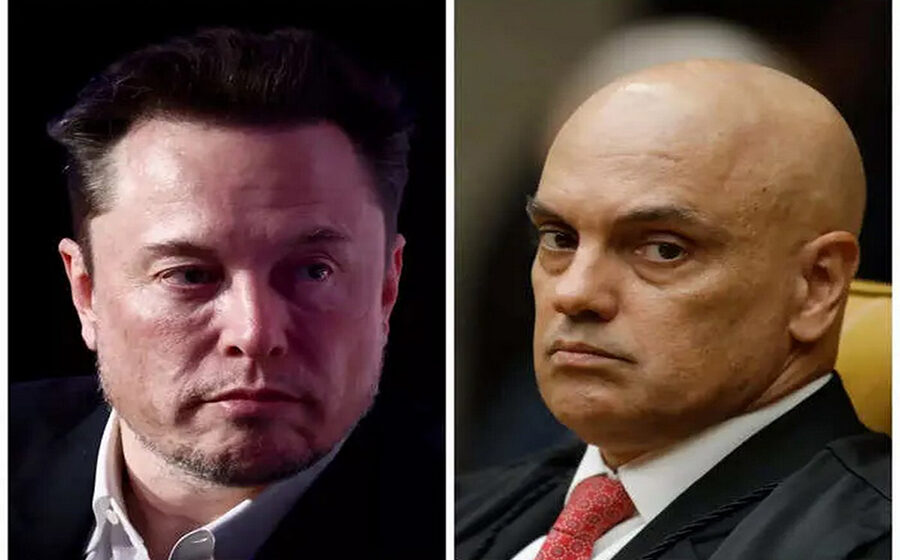Elon Musk finds himself entangled in yet another controversy, this time with Brazil’s judiciary, over the country’s orders to block certain X accounts accused of spreading election misinformation. While Brazil grapples with the delicate balance between free speech and safeguarding democracy, Musk’s intervention, perceived as empowering an antidemocratic faction of the far-right, has raised concerns among civil-liberties experts.
Musk’s Defiance and Legal Consequences
Musk publicly announced his opposition to an order from Alexandre de Moraes, a prominent judge on Brazil’s supreme court, to ban undisclosed X accounts associated with Brazil’s far-right circles. In response, de Moraes initiated an investigation into Musk, alleging obstruction of justice, involvement in criminal activities, and incitement. The judge labeled Musk’s weekend posts on X as a “disinformation campaign” and warned of substantial fines for each reinstated account in Brazil.
Context and Background
De Moraes’ actions are part of broader efforts in Brazil to combat hate speech and false information, with the judge leading initiatives against digital militias spreading misinformation online. These measures gained significance following the January 8, 2023, riot by far-right extremists, incited by false claims of election fraud by then-President Jair Bolsonaro. De Moraes’ investigations revealed coordinated social-media campaigns aimed at undermining Brazil’s electoral processes, which contravened X’s content guidelines.
Musk’s Defense and Criticism
Musk’s defense of the banned accounts has drawn criticism, with civil-liberties advocates arguing that it aligns with the interests of Brazil’s far-right, including Bolsonaro himself. Veridiana Alimonti from the Electronic Frontier Foundation noted that Musk’s stance undermined nuanced debates on online freedom of expression and content moderation. While Musk champions free speech, his selective interventions raise questions about his commitment to unfettered expression, particularly concerning his business interests in countries with restrictive speech laws.
Inconsistencies in Musk’s Approach
Musk’s defiance of Brazil’s government contrasts starkly with his previous compliance with speech restrictions in China, India, and Turkey, where X faced censorship demands. This pattern suggests that Musk’s defense of free speech may be contingent on factors such as ideological alignment or business interests. Critics argue that Musk’s intervention in Brazil prioritizes his personal interests over broader democratic principles, undermining efforts to combat hate speech and misinformation.
Implications for Brazil’s Democracy
Musk’s involvement in Brazil’s free speech debate raises broader concerns about foreign influence and democratic integrity. Nina Santos, a digital-democracy researcher, warns against privileging the opinions of foreign billionaires over democratic institutions. As Brazil contends with challenges to its democratic norms, Musk’s intervention underscores the complexities of navigating global tech platforms and the responsibilities of tech leaders in shaping democratic discourse.
As Musk’s clash with Brazil’s judiciary unfolds, it underscores the intricate dynamics between tech governance, free speech, and democratic governance, with implications far beyond national borders.



